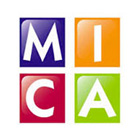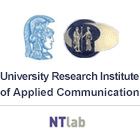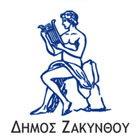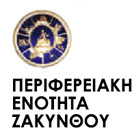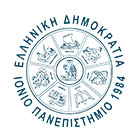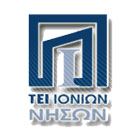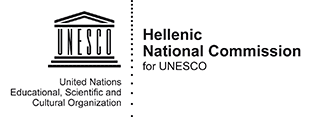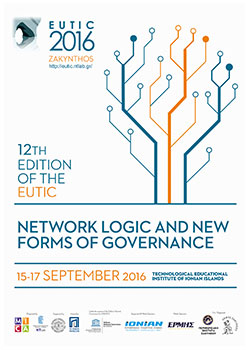Call for Papers
EUTIC 2016
The European Multidisciplinary Research Network on the Challenges and Uses of Information and Communication Technologies (EUTIC) is glad to announce the 12th edition of the EUTIC International Conference, co-organized by MICA (France) and the University of Athens (Greece), supported by the Ionian University, in the Technological Educational Institute of Ionian Islands, Zakynthos Island on 15-17 September 2016.
NETWORK LOGIC AND NEW FORMS OF GOVERNANCE
Different types of organizations and human activities encounter today deep changes in their fundamental principles, due to the development of ICT (Information and Communication Technology). Technical evolution is accompanied by important changes in the governance practices of organizations, as well as in the production and diffusion of information.
From a classic viewpoint, the governance 1 of an enterprise or an organization, private or public, consists in the application of appropriate means in order to achieve a number of set objectives 2. This includes the conception of strategic orientations, the elaboration of rules in order to realize them, the mobilization of material and human resources as well as the management of risks.
Whether designed for profit-making or not, the vast majority of human activities have operated for centuries according to hierarchical principles, based on the authority of some directing entity. In this line of thought, enterprises and organizations are structured in pyramid schemes, whereas flow of information is basically implemented through a top-down unidirectional model.
The explosion of ICT has largely contributed in the breaking up of such traditional schemes, facilitating interactions and transversal exchanges, notably with the appearance of blogs, wikis, forums as well as social networks whose different uses are always expanding. An increase can be observed in the power of crowdsourcing, based on the enactment of collaborative action. The logic of hierarchical and tree-like order is more and more leaving the grounds to network organizations, promoting bottom-up and transversal flows of information as well as participatory engagement. Whatever the organization of reference, it is no longer possible to treat users, domain actors, citizens in a fragmented way.
This state of things corresponds to what can be called new experience of new governance, referring to schemes that unify within the information and decision-making life-cycles both top-down and bottom-up flows. Publics, users, locals, citizens are no longer restricted to the role of a passive receiver, but need to be considered as fully-fledged actors that can participate in the elaboration of a project and bring in their expertise, based on their domain knowledge and on pragmatic aspects alike. In this line of thought, scientific knowledge and common knowledge complement each other and contribute to the same objective, even if at times the borders between those two types of experience can be stretched.
It is necessary to change our point of view on the value and effectiveness of decision-making. At times, pitfalls can arise in cases of delocalization, delegation, work from distance, with a risk of unwanted interference between public and private life. An important issue, therefore, is to assess the advantages and risks inherent in the changes brought about by the new types of organization. It is in the world of co-decision, consultation, co-management and exchange that we can find successful solutions for handling the complex situations that we are confronted with in everyday life.
On the premise that collective intelligence and diversity are two of the emerging values of our society, this 12th edition of the EUTIC international conference proposes to explore the relations that can be established between principles of systems, human and digital networks and the explosion of public expression favored by the increasing appeal of Web 2.0.
Submissions focusing on new forms of governance through digital networks are invited along the following non-exhaustive list of themes:
- Engagement, eco-citizenship and sustainable development
- Tourism networks and new media
- Societal evolutions and collective intelligence
- Democratization of expression spaces, media and social networks
- ICTs and public/political engagement
- Information systems and changes in the role of user experience, crowdsourcing
- New forms of governance, user experience and ergonomics
- Knowledge exchange and transfer, e-learning, e-publishing, MOOCs
- Networks and video games, serious games
- Internet of things, augmented reality, augmented humans
- Outsourcing, cloud computing
- Opening up of information spaces, open data, open archives
- ICT, cross-cultural and political debates
- Effectiveness of public action, new public management, open government
Submissions can be made in English or French, and they can have the form of a paper or poster.
All accepted submissions will be published in the conference proceedings in printed or digital format, under the condition that at least one of the authors registers and presents during the conference.
All submission proposals (papers and posters) should include a title, 5 keywords, a 2-page proposal and references. Please indicate the conference theme that you are addressing.
In the first page of your submission, please indicate author details, affiliation and position, email and postal address and telephone/fax number.
In the second page of your submission please provide the title of your work, 5 keyword and an abstract between 5,000 and 6,000 characters presenting the topic of your work, methodology, corpus of data analyzed and achieved/expected results.
Accepted submission proposals may be subject to revisions according to review comments of the EUTIC 2016 Conference Scientific Committee prior to final acceptance.
Please send your submission proposals no later than 18 April 2016 9 May 2016 by email to eutic@ntlab.gr with “EUTIC 2016 submission proposal” as message subject.
The full text of your work will need to be provided by 22 August 2016, in order to be published in the conference proceedings according to the details announced.
This text should not exceed 30,000 characters (without spaces) + 2 pages of references and needs to follow the formatting guidelines available on the website.
Conference venue: Technological Educational Institute of Ionian Islands, Zakynthos Island
IMPORTANT DATES
• Announcement of the call for papers : 2 March 2016
• Deadline for submission proposals : 18 April 2016 9 May 2016
• Author notifications : 23 May 2016 6 June 2016 15 June 2016 17 June 2016
• Deadline for submission of full papers : 22 August 2016
• Deadline for conference and dinner registration : 18 July 2016 22 August 2016
• Conference dates : 15-17 September 2016
PAYMENT DETAILS
Only bank transfer and credit card payments can be accepted (please check registration details on the conference website).
REGISTRATION RATES
• doctoral students: 100 €
• academics and researchers: 190 €
• non-academics: 250 €
• dinner tickets: 50 €
1 Lacroix, I., & St-Arnaud, P. O. (2012). La gouvernance: tenter une définition. Cahiers de recherche. Online available at http://www.usherbrooke.ca/politique-appliquee/fileadmin/sites/flsh/politique/documents/cahiers/Vol4-no3-article2.pdf
2 http://www.governanceinstitute.com/




